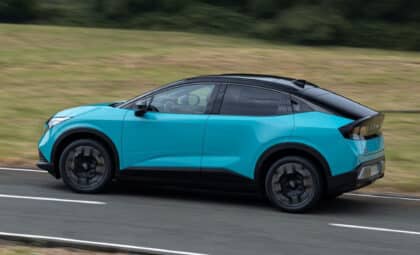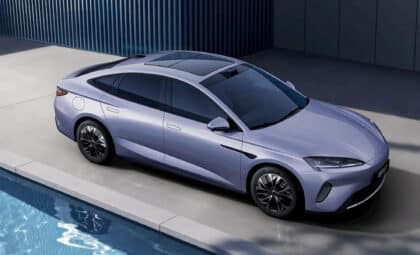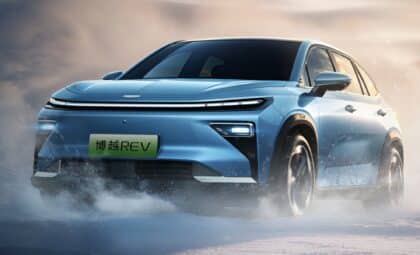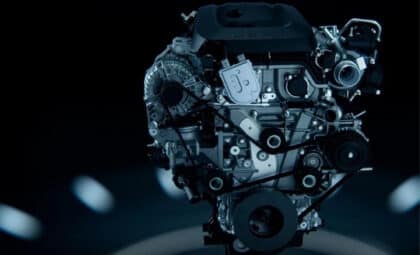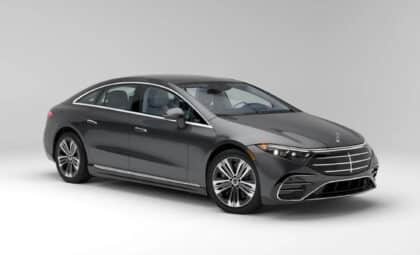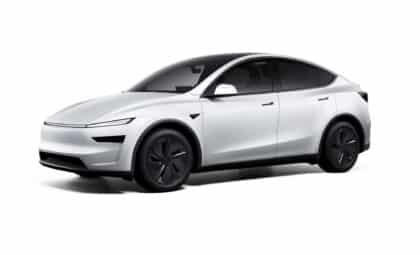This marks the fourth consecutive quarter that BYD has surpassed Tesla in global deliveries, and its momentum shows no signs of slowing—especially in Europe, where it has now outsold Tesla for two straight months.
While Tesla is facing a slowdown in several key markets, including Europe and Australia, BYD is expanding its footprint with a broader lineup and competitive pricing. The race between these two EV giants reflects a shifting industry landscape, where brand prestige is no longer enough to guarantee dominance.
BYD sold 1.61 million EVs between January and September 2025, up 37 percent compared to the same period in 2024. Tesla, meanwhile, reported 1.22 million EV sales globally—a 6 percent drop year-over-year. This reversal is particularly striking given that just one year ago, Tesla led by over 120,000 units. Despite logging a record-breaking sales quarter from July to September, Tesla’s global performance was not enough to close the gap with BYD.
European Shift: BYD Climbs, Tesla Drops
The turning point is not limited to global numbers. In Europe, BYD has overtaken Tesla in BEV registrations for the second consecutive month, according to data cited by Reuters. In July 2025, BYD registered 13,503 battery electric vehicles in the EU, compared to Tesla’s 8,837. This followed a similar outcome in April, when BYD sold 7,231 EVs against Tesla’s 7,165.
The trend appears to be consolidating. Between January and July, BYD registered 84,416 units across the region—a year-on-year increase of over 290 percent. During the same period, Tesla’s registrations dropped more than 33 percent, totaling 119,013 vehicles. As a result, BYD’s market share rose to 1.2 percent in July, eclipsing Tesla’s 0.8 percent for the month.
This market realignment underscores a broader shift in consumer behavior. European buyers, increasingly cost-conscious and incentivized by local EV subsidies, are gravitating toward brands that offer greater variety at lower price points. BYD’s strategy of introducing affordable, segment-specific models appears to be paying off.
Contrasting Business Models and Product Portfolios
The divergence in strategy between BYD and Tesla is becoming more pronounced. Tesla has remained focused on a high-tech, premium offering with a limited number of models, including the Model 3 and Model Y. It also relies heavily on its direct-to-consumer sales model and its proprietary Supercharger network.
By contrast, BYD offers a broader selection of both BEVs and PHEVs, with models ranging from compact hatchbacks like the Atto 1 to large SUVs like the Sealion 8. The company leverages traditional dealership networks in Europe and Australia, where local service and in-person sales support still hold significant value. According to CarExpert, BYD recently took over its Australian distribution and has since confirmed multiple new models for release, including PHEV SUVs under its Denza sub-brand.
In terms of pricing, BYD has a clear edge. Its vehicles are often 20 to 30 percent less expensive than equivalent Tesla models. While Tesla recently introduced a long-range version of the Model 3 with an extended 750km driving range, the move appears aimed at countering BYD’s aggressive pricing rather than expanding product diversity.
Headwinds for Tesla as Byd Strengthens Its Position
Despite strong brand recognition and technical leadership, Tesla is facing mounting pressure in markets it once dominated. In Europe, it has not only lost ground to BYD, but has also fallen behind Volkswagen, which outpaced Tesla in both July and August 2025. As reported by the same source, Tesla’s downturn extends to Australia as well, where its sales declined before rebounding slightly with updates to the Model Y.
Meanwhile, BYD has become the first Chinese brand to break into Australia’s top five best-selling automakers, and it has maintained top-10 positions since June. Its multi-brand strategy—coupled with plans for future production in Europe, including a proposed factory in Hungary—suggests that its presence in global markets will only deepen.
Public perception is also influencing market dynamics. Tesla’s CEO, Elon Musk, remains a polarizing figure, and his actions have contributed to a growing image gap between the two companies—particularly in Europe, where political neutrality and consistent brand messaging carry weight.


